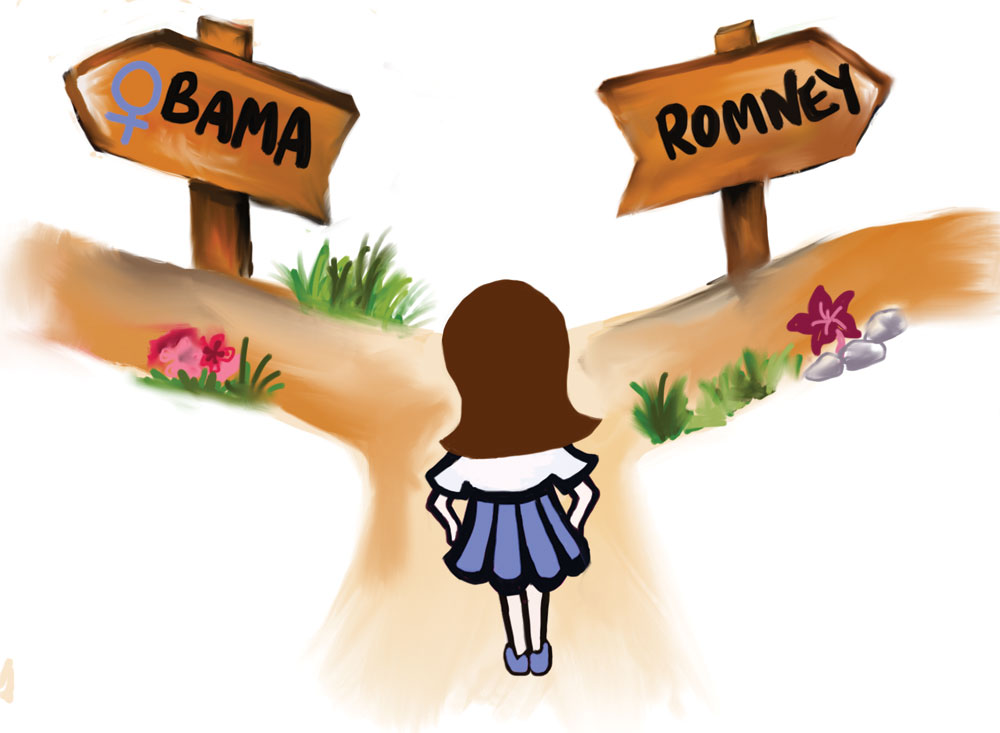Alexandra Tashman: Programs need to encourage political careers for women

By Daily Bruin Staff
Oct. 29, 2012 11:03 p.m.
In this country, equal pay legislation is nearly 50 years old, workplace discrimination based on gender is illegal and women enjoy unrestricted voting access. And yet there are many places in this country where women seem to be far from represented.
Perhaps the strongest case to be made is our nation’s Congress.
For a group that comprises about half of the population, women make up less than one-fifth of legislative positions in one of this country’s primary governing bodies. Only 39 women have ever served in the U.S. Senate and only 238 in the House of Representatives. Currently, women make up about 17 percent of the population in each of the houses.
There’s clearly no one identifiable problem that is responsible for this disparity, or it would have likely been solved already. That said, this problem has been attributed to everything from traditional power structures to lower confidence levels in young women to an absence of female role models in the political sphere ““ a stubborn Catch-22.
The best step to fix this gap in gender-based representation is to encourage young women to enter politics and encourage them early. Fueling an interest in politics and the goings-on of the world should start well before college. Only then can these stereotypes and barriers be broken.
A practical application of this interest can begin as early as a student’s undergraduate years, but it is clear women need to extend their political reach.
When it comes to their civic duties ““ even putting aside decades of specific, women-based advocacy ““ women are clearly politically engaged. A larger percentage of eligible women than eligible men have voted in the last eight consecutive presidential elections ““ 70.4 million women compared to 60.7 million men in 2008 alone.
While women should not be considered a single voting bloc, in 2008 they had 9.7 million more votes than men, which is enough to swing an election. Clearly, however, our voting power still does not guarantee us balanced representation in this country.
“When I think about why there are so few women in Congress, I think it’s probably for the same reasons that we see so few women CEOs, which has to do with the glass ceiling,” said Kathleen Bawn, an associate professor of political science. “However, I think some of these problems are amplified within our government because women have to constantly make trade-offs between family and career.”
Still, more women should and must enter politics to allow for more accurate representation of the desires and goals of the country’s population, and in turn, improve the caliber of our democracy.
As seen continually this election season, even in the 21st century, the reproductive rights and autonomy of women are still at stake. Perhaps members of Congress would cease making such uneducated comments about rape if they had more female counterparts to act as representatives for one half of the U.S. population.
In a global sense, the U.S. is about average in terms of women elected in national legislative bodies: the global average hovers around 18 percent and the U.S. falls at 17 percent.
While setting a quota for equal representation based on gender would certainly be ridiculous, we should not ignore the data and allow unequal representation to fester.
So how can we encourage more women to get into politics?
While the effort won’t be simple, one concrete place to start would be with the creation of internship programs or mentorship groups geared towards encouraging young women to enter politics. In this way, students with the interest or passion would be encouraged and enabled to pursue politics.
“By mentoring women and giving them a whole range of skills, including networking, I think we could see a great deal more women entering the field at a national level,” said Purnima Mankekar, an associate professor of gender studies.
Mentorship programs, if constructed specifically for women, could also be a useful strategy for parties to garner a substantial voting bloc.
In 2008, 70 percent of unmarried women voted for Barack Obama ““ a big deal considering that most college-age women fall into that bracket. Should the Republican party hope to garner more support within this group, it should be quick to encourage and foster such programs.
Never before has there been a greater need for women to hold the highest offices in this country. With threats on our bodily autonomy and the legitimacy of sex crimes, our representation has never been more crucial.
Establishing programs that help college-age women seek careers in politics could serve as a lasting legacy for UCLA, one that demonstrates a clear focus on supporting the ambitions of young women who want to serve our country.
Email Tashman at [email protected]. Send general comments to [email protected] or tweet us @DBOpinion.


